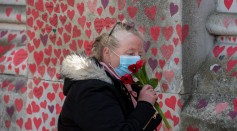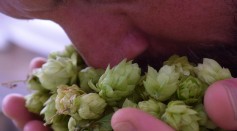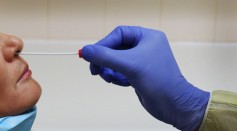anosmia

Humans' Sense of Smell Degrades Due To Mutation in Scent Receptors Causing Less Sensitivity To Body Odor

Long COVID Symptoms Recovery: How to Regain Sense of Smell and Taste After Loss
![Poor Sense Of Smell Linked to 50% Chances of Having Pneumonia [STUDY]](https://1721181113.rsc.cdn77.org/data/images/full/33530/poor-sense-of-smell-linked-to-50-chances-of-having-pneumonia-study.jpg?w=237&h=131)
COVID-19 Anosmia Cure: Vitamin A Nasal Spray, Drops Could Help You Get Back Your Sense of Smell

Loss of Smell, Taste After Surviving COVID-19 Might Take a Year to Recover

"Olfactory Training" Can Help Treat Anosmia in COVID-19 Long-Haulers, Studies Show

Experts Claim Smell Training Could Get Your Sense of Smell Back After COVID-19 Infection

COVID-19 Anosmia Cure Found? Smell Loss Can Be Treated Without Using Steroids, Experts Said

Sixth-Graders in Maine Turn Their COVID Experience Into a Science Experiment

Parosmia: A Foul-Smelling Effect of COVID-19

COVID-19: Cells Causing Loss of Smell Identified

Loss of Smell and Taste: Peculiar Signs of COVID-19
Most Popular

How a Plant-Based Diet Can Protect Against Breast Cancer: Insights from Nutrition Research

Study Reveals High Turnover in Scientific Research Careers: What This Means for Future Scientists

Practical Steps to Future-Proof Your Money to Create Financial Security

How Technology Is Changing the Real Estate Industry?






